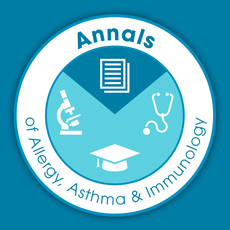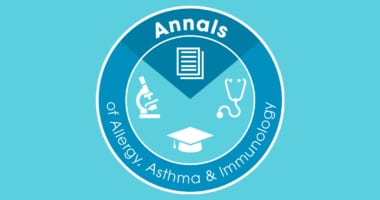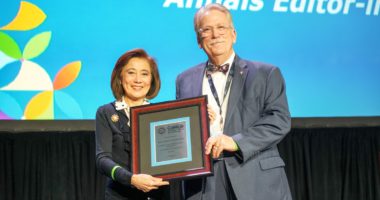 Happy September everyone! Football season is here (along with weed pollen in many parts of the country), kids are back in school. And we are all looking for upcoming regulatory changes that will likely provide economic challenges for many of us who care for patients, both community and academic based. This month’s issue of the Annals of Allergy, Asthma and Immunology emphasizes the pharmacoecomomics of allergy practice. We have collected several fine pieces from experts who have provided thought provoking opinions and perspectives.
Happy September everyone! Football season is here (along with weed pollen in many parts of the country), kids are back in school. And we are all looking for upcoming regulatory changes that will likely provide economic challenges for many of us who care for patients, both community and academic based. This month’s issue of the Annals of Allergy, Asthma and Immunology emphasizes the pharmacoecomomics of allergy practice. We have collected several fine pieces from experts who have provided thought provoking opinions and perspectives.
For those of us who have been practicing for some time, the historical treatment for food allergy attempted to hone in on the offending food(s), provide strict avoidance instructions and management of accidental exposures. Marcus Shaker, MD, MS, FACAAI and Matthew Greenhawt, MD, MBA, MSc, FACAAI reviewed the cost-effectiveness of food allergy management strategies in infants at risk for developing food allergies.
They report that screening of at-risk infants for peanut allergy carries its own risk of over diagnosis and is not cost-effective. Evidence suggests cost-effective care could be better optimized by minimizing delay in oral food challenges for eligible patients, clarifying the role of precautionary allergen labelling, incorporating patient-preference sensitive care in activation of emergency medical services for resolved allergic reactions and considering value-based pricing and school-supply models for epinephrine. They conclude that because of the limited cost effectiveness of food allergy screening for these infants, a greater role for incorporating patient and family preferences into guideline-based and traditionally reflexive management decisions is preferable.
Another interesting review (with CME credit) is from Christopher D. Codispoti, MD, PhD, and Mahboobeh Mahdavinia, MD, who address the economic considerations of the new indications for biologics in the treatment of chronic rhinosinusitis with nasal polyps. They identify the need for cost-effectiveness analysis of biologic therapies in the treatment of chronic rhinosinusitis (CRS). To date, there have been no cost-effectiveness analyses of biologic therapies in CRS.
They conclude that as more clinical trials of biologic therapies in CRS are conducted, there is a definite need for cost-effectiveness analysis. Future analyses should consider these analyses as part of medical therapeutic options in comparison to surgery. To increase generalizability, they should include samples from allergy and primary care clinics, rather than only otolaryngology clinics. The authors provide a compelling argument that will likely form part of future arguments related to insurance approvals for these patients.
As always, I welcome your feedback and comments. Happy reading!
Gailen D. Marshall, Jr., MD, PhD, FACAAI
Editor-in-chief

